Google Translate
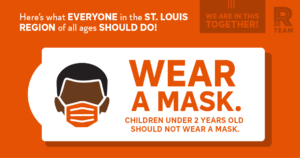
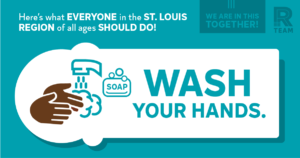
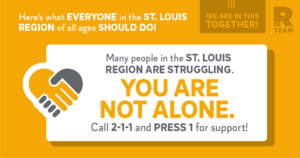
COVID-19
COVID-19 vaccines and boosters continue to be very effective, even against new variants. Vaccines prevent you from getting sick and reduce your chances of hospitalization and death from COVID-19. For those who have already completed their initial vaccination series, booster shots can help you stay protected against the virus. Getting the vaccine is also a great way to protect your loved ones and those around you by decreasing community spread of the disease. The decision to receive the COVID-19 vaccine is a personal one. Visit PrepareSTL for more information to help you make an informed decision about obtaining the vaccine.
Know Your COVID-19 Community Levels
COVID-19 infection levels can change quickly across the country. To keep up-to-date with infection levels in your community and CDC guidance for prevention, enter your state and county below.
Getting tested can help reduce spread. If you are experiencing symptoms of COVID-19 or have recently had contact with an infected person, you might want to get tested. Sign up to receive free COVID-19 tests at COVIDtests.gov or by calling 1-800-232-0233. Click here for the CDC’s guide on testing.
Wearing a mask and social distancing continue to offer additional levels of protection from the virus. Read the CDC’s guide on how to protect yourself and others from COVID-19 for more information.
For more updates about COVID-19 in St. Louis, visit the iHeardSTL website. iHeardSTL addresses St. Louisans’ top COVID-19 concerns by asking what information residents are hearing and distinguishing myths from facts.
VACCINES
For COVID vaccination events taking place across Missouri, please visit MOStopsCOVID. To locate either flu or COVID vaccine clinics nationally, visit vaccines.gov.
MONKEYPOX
The CDC is tracking an outbreak of monkeypox that has spread across several countries that don’t normally report monkeypox, including the United States. Click on the drop-downs below for answers to some frequently asked questions about the outbreak as well as information on testing, vaccination, and protecting yourself.
Monkeypox is a rare illness caused by infection with the monkeypox virus. Individuals infected with monkeypox usually have flu-like symptoms and fatigue, followed by a rash that looks like pimples, sores, or blisters. Although the sores can be painful or itchy, monkeypox infection is rarely fatal.
Monkeypox is spread through close contact with large respiratory droplets (for example kissing, sneezing, etc.), skin-to-skin contact with the sores, or through sharing items like bedsheets or clothes with someone who has the virus.
Anyone, regardless of gender identity or sexual orientation, can get monkeypox if they come into close contact with an infected person. However, currently, the largest number of cases have been documented in networks of men who have sex with men.
Monkeypox symptoms can appear between 5-21 days after being infected and can include headache, fever, muscle aches and back pain, swollen lymph nodes, and skin rashes or lesions.
- Avoid close, skin-to-skin contact with people who have a rash that looks like monkeypox. Close contact includes kissing, hugging, cuddling, or having sex.
- Avoid sharing utensils, cups, bedding, towels, or clothing with other people.
- Frequently wash hands with soap and water, or use an alcohol-based sanitizer.
If you have been recently exposed to monkeypox or if you meet the eligibility criteria for being most affected during the current outbreak, you may be able to receive a vaccine. Visit the St. Louis County or St. Louis City websites to find more information about vaccination eligibility and a vaccine interest survey.
If you start to notice symptoms of monkeypox, contact your primary care provider or one of the testing clinics below to be tested and treated.
For more information contact your local health department or visit the CDC website.
Social Media Highlights
Health Care Resources
If you do not have an established primary care physician and/or health insurance, Community Referral Coordinators (CRC) with the St. Louis Integrated Health Network may be able to help you access care. You can contact a CRC below for assistance, or fill out this simple form online and they will reach out to you!
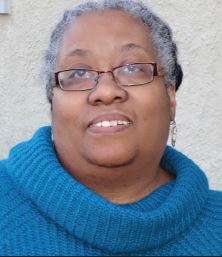

Community Referral Coordinators assist you by:
- Supporting you in connecting with a Primary Care Provider (PCP)
- Helping you get established at a community health center
- Exploring options for health insurance programs
- Scheduling follow up appointments
- Get help via the CRC referral form
#InformYourChoice
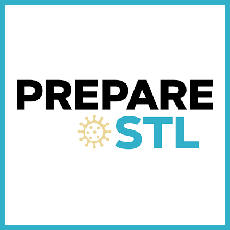
PrepareSTL
Now that the COVID-19 vaccine is here, you have to decide whether or not to get it. You need trusted, fact-based information, to make an informed decision. You have control over what happens to your body. Consider the virus, the vaccine, and your immune system. Visit PrepareSTL for more information!
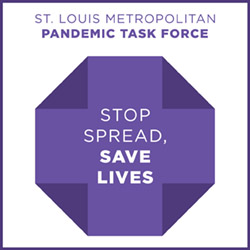
The St. Louis Metropolitan Pandemic Task Force
Vaccinate STL is brought to you in partnership with the St. Louis Metropolitan Pandemic Task Force, a collaboration between regional hospital systems, public health departments, elected leaders, and community organizations, all working together to provide the best possible care to patients.




